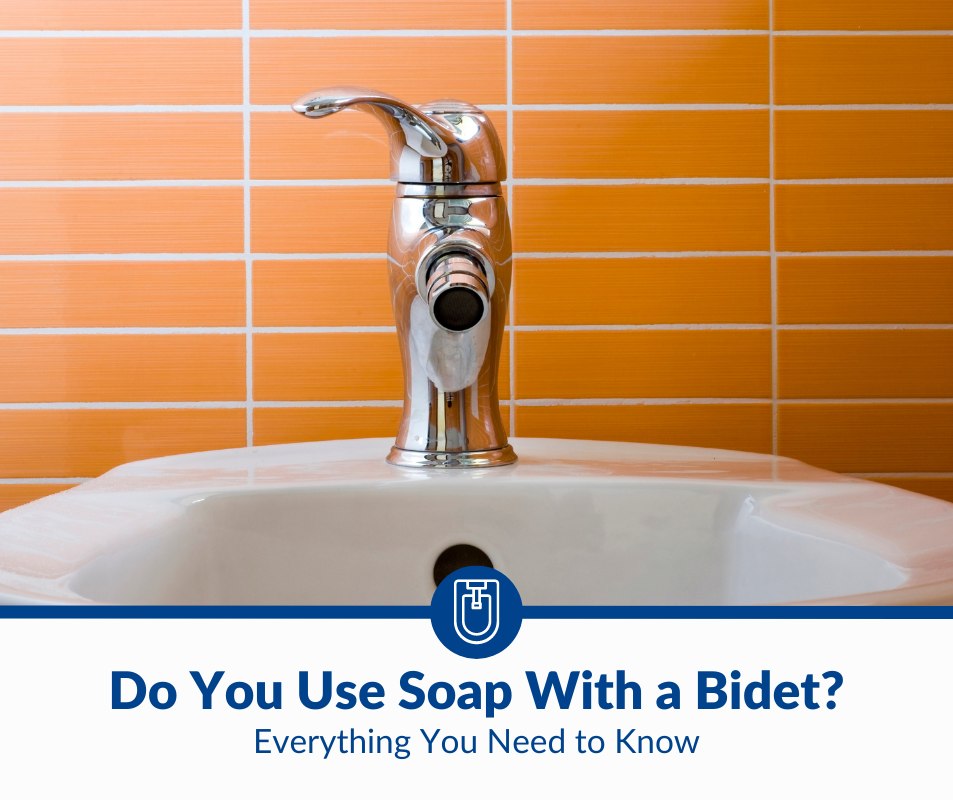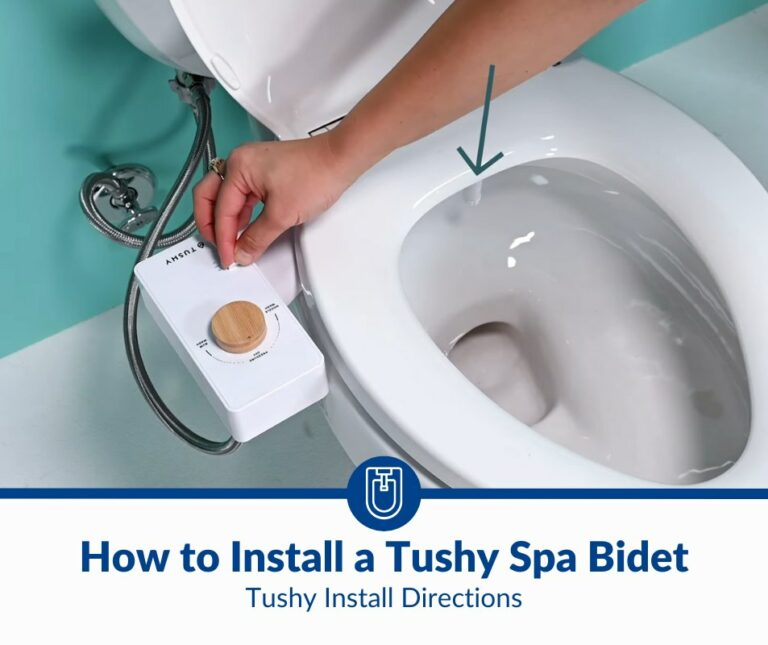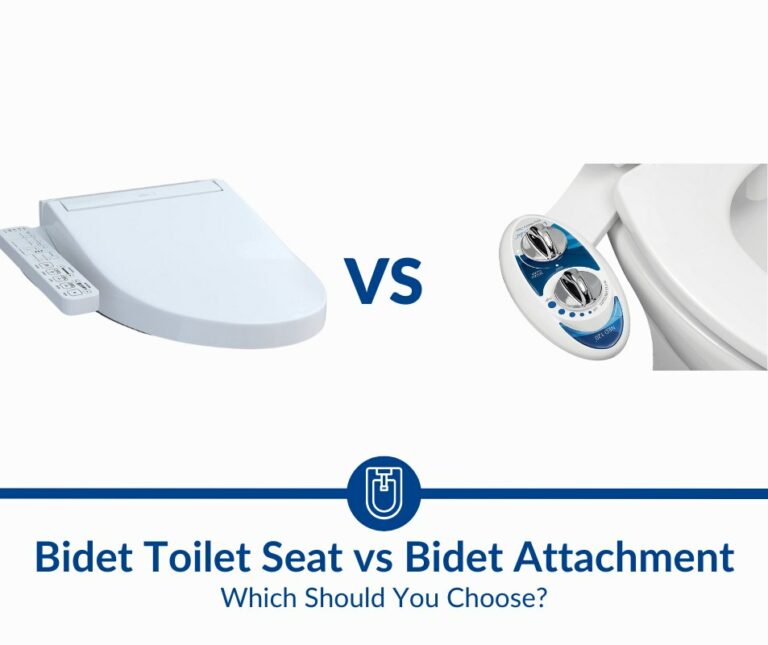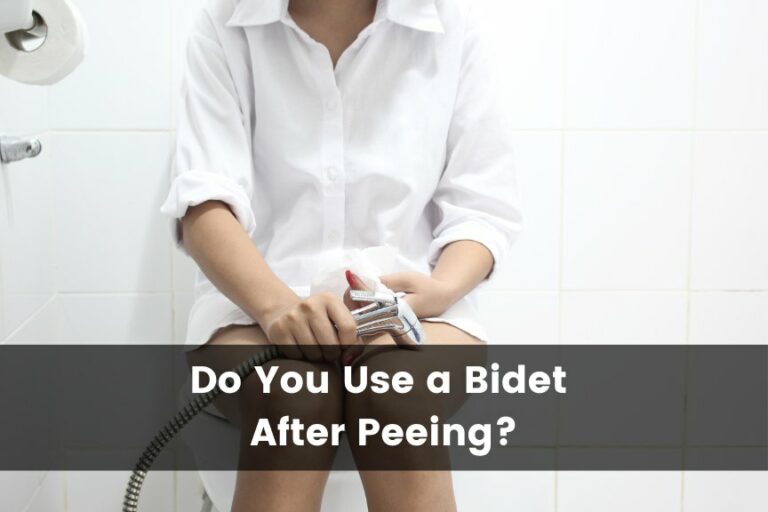Do You Use Soap With a Bidet?
Originally a French invention, bidets have become increasingly common around the world. They provide a more eco-friendly and hygienic alternative to conventional toilet paper. Still, a common dilemma is whether to use soap with a bidet.
You do not use soap with a bidet. The warm water from a bidet is sufficient to clean your privates. Furthermore, we don’t recommend washing these areas with soap because it could interfere with the microbial balance and cause yeast infections. Nonetheless, you may use mild, unscented soap.
Please continue reading to learn more about this topic. I will discuss whether you need to use soap with a bidet and what happens when you do. I’ll also explore bidet etiquette, how to use a bidet with soap, and some hygiene tips for using a bidet.
Do You Need Soap To Use a Bidet?
You do not need to use soap with a bidet. It is unnecessary and, in many cases, unsafe.
When properly used, a bidet cleans thoroughly. Moreover, cleaning your genitals with soap is not recommended for the following reasons:
- For females, soap disrupts the healthy vaginal microbiome, which can cause yeast infections, urinary tract infections (UTIs), and other health conditions.
- The vagina is a self-cleaning organ, and cleaning with plain water is sufficient.
- For males, using soap can also irritate the sensitive skin on the penis.
- Cleaning the anal area may dry the skin to the point that it causes issues like hemorrhoids.
If you wish to use soap with a bidet, choose a mild, fragrance-free soap because it is less likely to dry out the skin and cause irritation.
Using a bidet without soap is a hygienic way to clean your genital area. However, it’s best to do it correctly to reap the benefits.
Bidet Etiquette: How To Correctly Use a Bidet Without Soap
Incorrect use of a bidet can cause significant health risks, such as urinary tract infections. To avoid these risks, you need to learn proper bidet etiquette. This guide will help you use a bidet correctly:
- Use the Toilet
Although classic bidets look like toilet bowls, you use them for different purposes. It’s best to only use bidets for cleaning after using the toilet. It is also best to dry-wipe if you pass feces, as this keeps the bidet drains from clogging with excess fecal matter.
- Assume the Proper Posture
Removing your clothing from the waist down is a good idea to keep it dry. Test the water temperature and pressure using your palm to confirm that it is comfortable. Avoid hot water as it may cause scalding. Excessive water pressure may also force contaminated water into the urinary tract and cause a urinary tract infection.
Afterward, straddle over or sit on the bidet while front-facing the faucet and controls. When using a bidet away from home, clean the bidet with some damp tissue, or put a layer of tissue on the rim or bidet seat before sitting.
- Clean Yourself
Align your genitals to the water jet and allow it to clean for 20 to 60 seconds. You may need to keep moving the spout to clean the area properly. Remember to clean front to back because this keeps fecal matter away from the urinary tract.
Once clean, pat yourself dry with tissue paper or a clean towel. Never share towels dedicated to bidet use, as this can spread harmful bacteria.
How To Use Soap With a Bidet
As mentioned earlier, using soap to clean genitalia is not recommended. Unfortunately, most bathing soaps are unsafe for cleaning these sensitive areas because they contain harmful chemicals. If you want to use soap to clean your private parts, look for the ones that are mild yet effective for washing (I’ll recommend some brands in a moment).
When using soap with a bidet, follow the traditional bidet etiquette as highlighted above. The only difference is that you need to apply soap lather as you clean yourself, and then rinse thoroughly. Use very little soap, and avoid using it too often to prevent drying out the area.
For women, do not wash inside the vagina with soap, but only the vulva and outer parts. As mentioned earlier, soap upsets normal vaginal flora, so you should never use soap inside the vagina.
Here are some gentle soap products that I recommend from Amazon:
- Dove Sensitive Skin Beauty Bar. You should consider opting for this soap if you want to clean “down there.” Not only will it not hurt the sensitive skin around your private area, but it’s also free of irritating chemicals. Despite being mild, it’s effective at cleaning, and you can also use it to clean the rest of your body, making it an all-around soap.
- Dr. Bronner’s Pure Castile Bar Soap. This soap contains gentle, organic oils. It does not contain any synthetic ingredients yet cleans effectively. The packaging comprises 100% recycled materials, so you’ll be reducing your carbon footprint.
Hygiene Tips for Using a Bidet
These hygiene tips will help you to get the best out of your bidet:
- Before using a bidet in someone else’s home, ask for permission.
- Some electric bidets have multiple control functions, so look through them and select what works for you before use.
- When using a bidet outside your home, use a piece of tissue or disposable material to open and close the faucet to protect yourself from germs that previous users may have left.
- Always check the temperature and pressure of the water before using the bidet and set it to a comfortable level.
- It is always best to wash from front to back to keep bacteria from entering the urinary tract.
- Give adequate time for the water to clean you thoroughly to prevent infections caused by bacteria in residual fecal matter.
- You may notice that many bidets have towels near them. Avoid using them to wipe because they’re supposed to be for your hands, not your private parts.
- Never dispose of tissue or anything else in the bidet sink because it will clog the drain pipes.
- Remember to wash your hands thoroughly after using a bidet.
- If you have a bidet in your home, keep it clean by regularly bleaching it to prevent the spread of germs.
Even if your bidet has a self-cleaning function, it is best to deep clean it regularly to get rid of bacteria that build up over time.
I don’t recommend public bidets because the likelihood of getting a urinary tract infection is high. Unfortunately, the public toilet staff may clean the bidets infrequently, and there are multiple users in-between cleanings. Thus, for your safety, avoid using public bidets.
Is a Bidet More Sanitary Than Toilet Paper?
A bidet is more sanitary than toilet paper because it cleans off fecal matter better. Dry wiping using toilet paper is relatively ineffective and barely removes all the fecal matter. Washing, on the other hand, cleans thoroughly.
Furthermore, bidets offer a gentle cleanse. They may also be a better alternative for those with hemorrhoids because they are thorough and gentle. Dry wiping with toilet paper may worsen hemorrhoid irritation because it usually takes several attempts to clean off everything. However, keep the water pressure low to prevent further irritation.
Bidets are also better for the environment because you use less toilet paper (made from trees). If more people used bidets, the demand and supply of toilet paper would go down and necessitate the destruction of fewer trees.
Are There Any Disadvantages to Using a Bidet?
Despite the many advantages of using a bidet, there are also some disadvantages. They include the following:
- It’s possible to pick up antimicrobial-resistant bacteria from bidets, as this study conducted in Japanese hospitals found.
- Another study conducted in India, Japan, and Korea showed that as many as 43% of female bidet users had a greater risk of bacterial vaginitis. In other words, the proportion of healthy vs. unhealthy microorganisms in female genitalia gets altered in favor of the latter after bidet usage.
- Stand-alone bidets eat up quite a bit of bathroom space, so if you have a small bathroom, it may cause inconvenience.
- Electric bidets don’t work when the power is out, so you can only use them when there’s power.
- They are also quite expensive to install.
- You may also have to spend more money on your water bill to sustain bidet use.
- Public bidets are unsanitary, and I don’t recommend you use them because they can spread harmful germs.
- A poorly cleaned bidet is a hub of harmful bacteria that can cause genital and urinary tract infections.
Conclusion
Using soap with a bidet is not recommended. Furthermore, the water from a bidet is sufficient to clean your genitalia after using the toilet.
Using a bidet without soap offers a more thorough cleanse than dry-wiping with toilet paper. It’s gentle on the skin and doesn’t irritate. For these reasons, it is a better alternative for people suffering from hemorrhoids.
Nonetheless, there are some disadvantages to using a bidet, such as an elevated risk of bacterial vaginitis in women.







